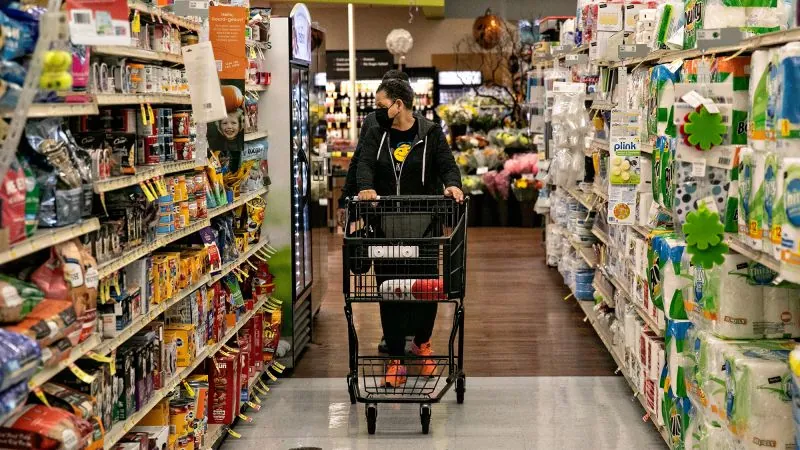
Albertsons Calls Off $25 Billion Merger with Kroger and Files Lawsuit
2024-12-11
Author: Ming
In a shocking turn of events, grocery giant Albertsons has officially canceled its monumental $25 billion merger with Kroger, marking the end of what would have been the largest supermarket consolidation in U.S. history. This decisive move highlights ongoing challenges in the grocery sector as it adapts to mounting competition from retail behemoths like Walmart and Amazon.
Albertsons CEO Vivek Sankaran announced the termination in a statement on Wednesday, emphasizing the difficulty of the decision. "We have made the difficult decision to terminate the merger agreement," he stated. The merger, initially revealed in 2022, aimed to unite the fifth and tenth largest retailers in the nation, both owning numerous well-known grocery chains including Safeway, Vons, Harris Teeter, and Fred Meyer.
In addition to halting the merger, Albertsons has taken legal action against Kroger, alleging breach of contract. The lawsuit claims that Kroger failed to fulfill its obligations to use its "best efforts" in securing the necessary regulatory approvals to facilitate the merger.
The termination of the merger deal comes just a day after a federal judge, Adrienne Nelson, ruled to temporarily block the agreement, stating that its completion would substantially harm competition. Judge Nelson's ruling underlined that supermarkets like Albertsons and Kroger operate differently from larger retailers with diverse product offerings, and a merger could lead to fewer choices and higher prices for consumers.
The proposed merger faced intense scrutiny from various stakeholders, including a coalition of unions and political leaders from both major parties who expressed concerns about excessive corporate consolidation. The Federal Trade Commission (FTC) also intervened with a lawsuit aiming to prevent the merger, marking a significant victory for outgoing FTC chair Lina Khan, known for her critical stance on monopolies and corporate mergers.
While Kroger and Albertsons maintained that their combined resources would lead to lower prices for customers, opponents argued that the opposite would occur, leading to price hikes in an already competitive market. Following the announcement of the merger's collapse, investors reacted positively, with shares of both companies enjoying a notable uptick. Albertsons further fueled investor confidence by announcing a share buyback of up to $2 billion, signaling its commitment to enhancing shareholder value.
Despite the setback, Albertsons indicated its plans to aggressively invest in store improvements, technology upgrades, and employee development, aiming to remain competitive in a challenging retail environment. Analysts suggest that Kroger is in a more stable position given its size and market dominance. CEO Rodney McMullen assured stakeholders last week that the company's growth trajectory would remain unaffected, stating, "We’ve always made sure that we don’t need to do mergers to make our business successful."
All eyes will remain on the grocery sector as Albertsons and Kroger navigate these changes and continue to battle the escalating competition from both established and emerging retailers.




 Brasil (PT)
Brasil (PT)
 Canada (EN)
Canada (EN)
 Chile (ES)
Chile (ES)
 España (ES)
España (ES)
 France (FR)
France (FR)
 Hong Kong (EN)
Hong Kong (EN)
 Italia (IT)
Italia (IT)
 日本 (JA)
日本 (JA)
 Magyarország (HU)
Magyarország (HU)
 Norge (NO)
Norge (NO)
 Polska (PL)
Polska (PL)
 Schweiz (DE)
Schweiz (DE)
 Singapore (EN)
Singapore (EN)
 Sverige (SV)
Sverige (SV)
 Suomi (FI)
Suomi (FI)
 Türkiye (TR)
Türkiye (TR)